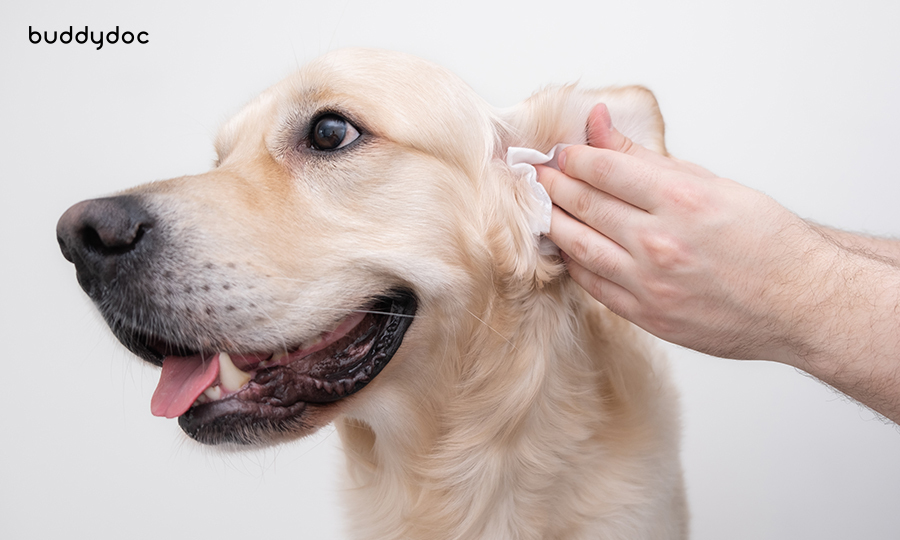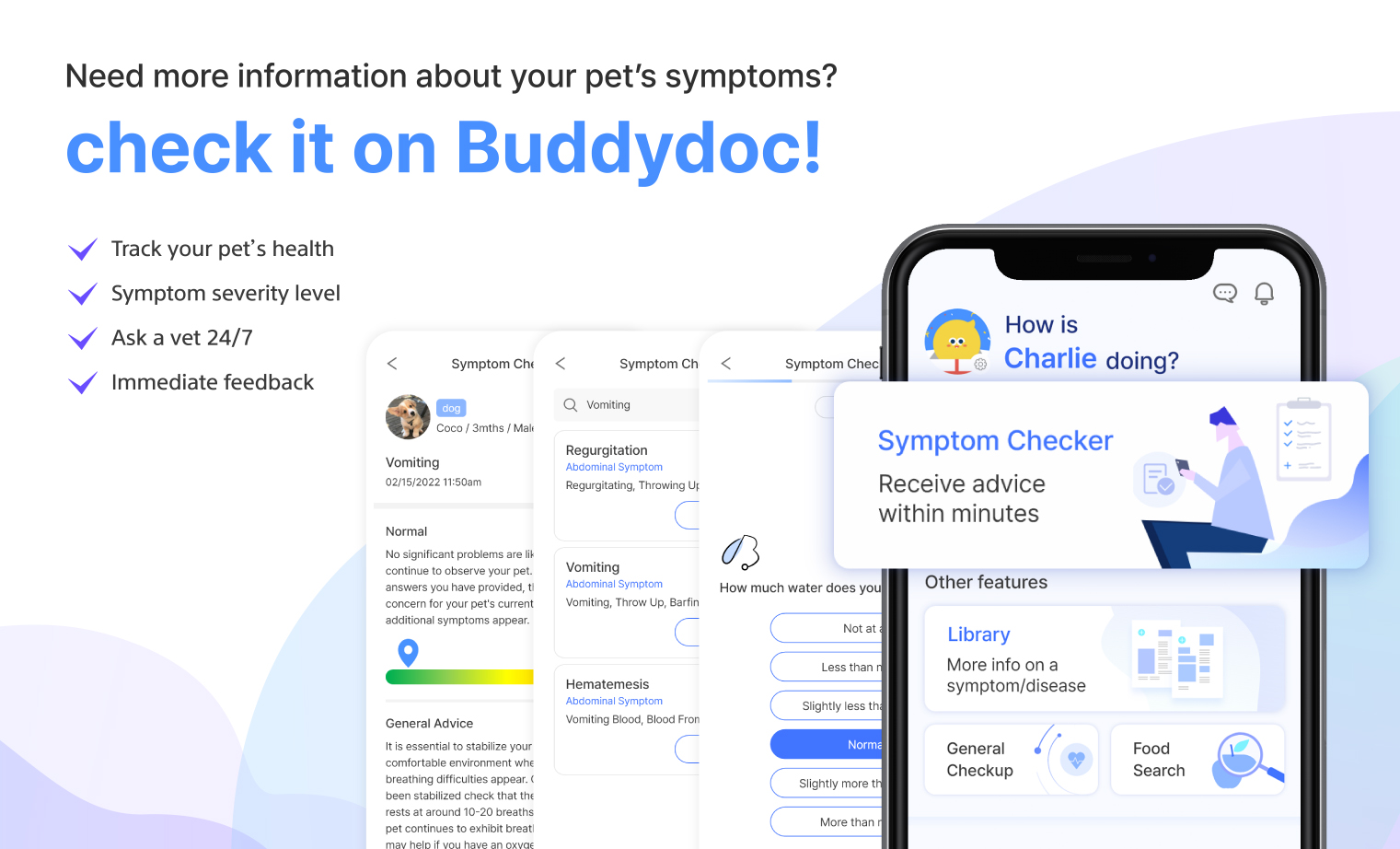SYMPTOMS
Deafness in Dogs - Causes and Signs of Hearing Loss in Dogs
페이지 정보
본문


What is deafness in dogs?
Deafness refers to the lack or loss of hearing that can occur in dogs. This is a pathological condition that can be categorized into two types: unilateral, affecting only one ear, or bilateral, affecting both ears.
Hearing loss can vary in its duration and extent. It may be temporary and partial, depending on the degree of impairment. In severe cases, it can lead to a complete loss of hearing. Several factors can contribute to hearing loss in dogs, including congenital defects, infections, trauma, obstructions, and aging. If you notice signs of hearing loss in your dog, it is best to treat it as prognosis is generally favorable before the condition worsens.
Causes of deafness in dogs
There are two broad causes of hearing loss for dogs. The first is congenital defects and the second is acquired deafness.
-
Congenital defects
Defects in the nerves involved in hearing or the ear can arise from genetic abnormalities or developmental issues. Congenital deafness can also result from a dog's exposure to toxic substances or viral infections during the fetal period.
-
Acquired defects
Acquired defects include hearing loss due to aging, prolonged exposure to loud noise, physical blockage due to excessive earwax or presence of a tumor inside the ear, and more. This category also includes any trauma inflicted within the ear, presence of an ear infection, and hearing loss due to exposure to some form of toxin.
Signs of deafness in dogs

The main symptom of hearing loss is a dulled or lost response to auditory cues in the environment, which can include common sounds such as squeaking toys, handclaps, doorbell ringing, and name calling.
Signs of deafness include little or no response to sounds like:
- Squeaky toys
- Clapping
- Snapping fingers behind the head
- Doorbells
- Calling their name
- Other dogs barking
Dogs with hearing loss will exhibit the following symptoms:
- Difficult to wake
- Startled easily
- Inclined to bark excessively
Risk of deafness in dogs
Hearing loss in dogs is typically not attributed to any particular disease or health issue. Several common breeds that have a genetic predisposition to hearing loss in dogs are the Dalmatian, Bull Terrier, Australian Heeler, Catahoula, English Cocker Spaniel, Parson Russell Terrier, and Boston Terrier.
Home treatment for deafness in dogs

Dogs with hearing loss require close attention at home due to their low response to auditory signals, which can increase the chance of injury. If your dog is not wearing a leash or chest strap, they should not be left alone in an outdoor environment that is not enclosed by a fence.
Training dogs with hearing loss to communicate through tactile signals or hand gestures is crucial. Instead of using their name, you can call your dog using a signal, like stamping your foot on the ground. Additionally, since dogs with hearing loss are more prone to getting lost, it is recommended to have them chipped to prevent such incidents.
For dogs that have undergone surgical or drug treatment, it is recommended to visit the hospital weekly for monitoring the prognosis. Infections as a cause of hearing loss typically recover within 2 to 3 weeks of treatment, although the severity of the infection may affect the recovery time.
Diagnosing deafness in dogs
If hearing loss is suspected, the veterinarian may begin the diagnosis process with a few questions to understand your dog’s situation.
- Under what circumstances have you noticed hearing loss?
- When did signs of hearing loss first appear?
To diagnose hearing issues, your vet will conduct a hearing test and physical exam to identify possible causes, including ear infections or neurological diseases. The vet may swab and culture the ear for infections or order a BAER test to measure the brain's response to auditory stimuli.
-
Physical examination
In order to determine whether the hearing loss is unilateral or bilateral, a noise is played in each ear, and the responses of both ears are compared.
-
Otoscope examination
Through an examination of the external auditory canal, it becomes possible to diagnose various blockages caused by wax, hair, foreign bodies, and other factors, as well as identify any trauma present.
-
Culture test
If there is a suspicion of infectious hearing loss, the cause can be determined by obtaining a sample from the ear canal using a cotton swab and performing a culture.
-
BAER (brainstem auditory evoked response) test
The BAER test is a comprehensive examination that assesses the brain wave response to sounds of a specific frequency, enabling the determination of your dog's hearing loss type.
Treatment for deafness in dogs
Treatment for hearing loss depends on the cause determined by the veterinarian.
-
Foreign body removal
If hearing loss is caused by blockage resulting from excessive earwax, hair, or a foreign substance, the treatment involves removing the cause of the blockage.
-
Inflammation treatment
When it comes to hearing loss caused by inflammation, the appropriate prescriptions vary depending on the severity of inflammation and its underlying cause. Treatment options may include ear flushing, antibiotics, antibiotic ointment, and anti-inflammatory agents. In cases where performing daily ear washing at home is challenging, longer-acting, oil-based antibiotic medications (such as wax-based antibiotic medication) can be administered directly into the ear.
-
Surgery
If hearing loss is caused by a physical tumor, surgical removal of the tumor can restore hearing.
-
Hearing aids
Similar to humans, dogs can have hearing aids installed to assist with their hearing; however, the cost for this treatment is significantly higher, and unlike humans, dogs are more reluctant to live with hearing aids attached to their ears.
Preventing deafness in dogs
Preventing hearing loss is generally challenging, but it can be mitigated in older dogs through the intake of Omega-3 supplements, vitamins with antioxidant functions, and curcumin, which help combat inflammation-induced hearing loss.
Find out more about your dog’s symptoms and diseases on the Buddydoc app!

The Buddydoc library is filled with everything you’d want to know about each symptom and disease your pet may experience. If you would like to find out more about the causes, signs, treatments, preventions, and more for your dog’s disease. Try out the Buddydoc app and search for your pet’s symptoms or diseases in the Buddydoc library.













